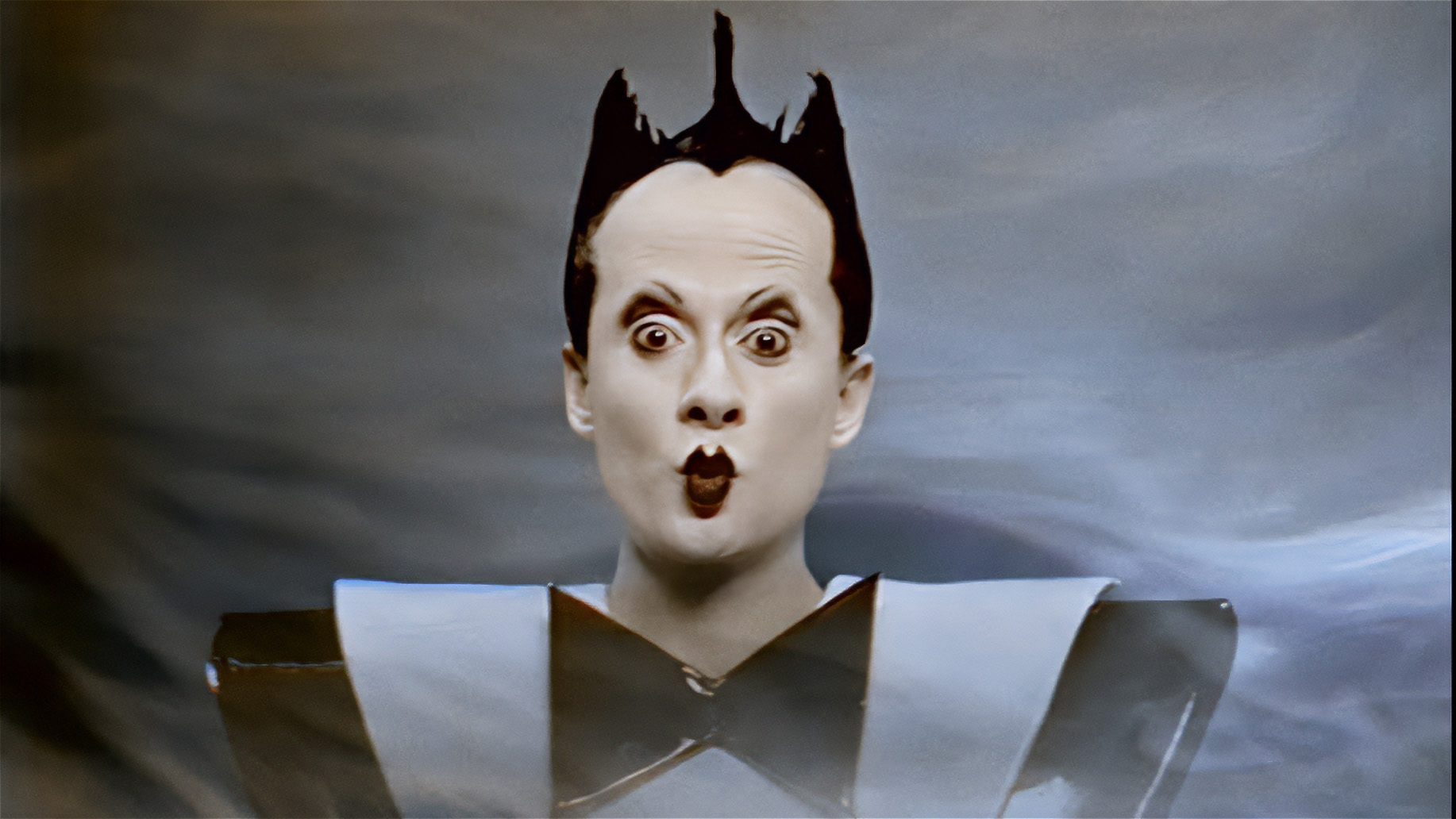Will the human race
With their collective brow
Will they know me
Know me, know me now?
In a profound tribute to the groundbreaking New Wave icon Klaus Nomi, Sony/Legacy is set to breathe new life into his truly avant-garde discography. This monumental reissue comes forty years after the world tragically lost this singular talent to complications from AIDS in 1983 at just 39 years old.
The inimitable Klaus Nomi (né Sperber), a German-born opera singer who landed in New York in the early 70s, was known not just for his astonishing vocal range, but also for his eccentric performance style and costume choices. Nomi was a key figure in the East Village scene, emerging during the vibrant New Wave era. He gained significant recognition after a memorable performance alongside David Bowie on Saturday Night Live in 1979 and a mesmerizing appearance on TV Party. Further cementing his place in music history, Nomi featured in the seminal 1981 concert film Urgh! A Music War.
In a candid conversation with Belgian television, Nomi defied traditional music categorizations, asserting his sound’s uniqueness. He proclaimed, “I wouldn’t assign it a label,” opting instead to identify his music under a singular, self-styled banner. “Maybe the only label is my own label: It’s Nomi style.”
In a bold act of defiance against musical norms, Klaus Nomi seamlessly wove together elements of opera, captivating melodies, disco pulses, and his tremendous countertenor to craft an atmosphere of unrivaled magnificence. This maverick approach to his craft imprinted an unforgettable mark on an array of artists, spanning from Lady Gaga to Morrissey. Nomi’s stage presence mirrored the diversity and intrigue of his music, with his visual flair and sound forming an inseparable symbiosis.
Nomi’s discography was an audacious mix of distinctive originals and offbeat renditions of popular hits. His interpretation of Lesley Gore’s “You Don’t Own Me” was transformed into a seething lament, while the chorus of Lou Christie’s “Lightnin’ Strikes” took on the grandeur of an opera aria. He even dabbled in a bit of disco – his bizarrely bombastic rendition of Marlene Dietrich’s world-weary torch song Falling In Love Again becomes strangely seductive. The underlying strategy, as explained by Hoffman in an interview, was to use pop songs as a gateway to opera for listeners who might otherwise be unprepared for such a genre shift.
Nomi’s emblematic plastic tuxedo, a fashion statement as daring as his music, was delivered from Mount Olympus by David Bowie himself. For his Saturday Night Live appearance in 1979, Bowie, who brought along Nomi and performer Joey Arias along for the ride after meeting them at the Mudd Club, donned a massive plastic tuxedo. Mark Ravitz, the visionary behind the sets for Bowie’s Diamond Dogs and Serious Moonlight tours, crafted this androgynous masterpiece that paid equal homage to Hugo Ball’s appearance at the Cabaret Voltaire and Sonia Delaunay’s monochromatic classic design, which was famously donned by Dadaist Tristan Tzara during a 1923 performance of “The Gas Heart.” The performance culminated in an uproar spearheaded by André Breton, who would later become a luminary in the Surrealist movement; the same was not true for Nomi, who adopted the tuxedo look as his own following the lone SNL cameo…albeit one he could actually walk around in!
This eclectic style extended beyond the music sphere, leaving a lasting impression on the world of fashion. Iconic designers such as Jean Paul Gaultier and Riccardo Tisci have acknowledged Nomi’s influence, his unique aesthetic vision finding its way into their daring collections.
Nomi’s resilience and spirit were palpable, with one of his most celebrated performances being his final one. He donned a Baroque-inspired costume that concealed the sarcomas developing on his body and neck at Eberhard Schoener’s Classic Rock Night in Munich in 1982. Accompanied by a full orchestra, Nomi tackled Purcell’s “Cold Song” from King Arthur, a demanding piece that required extraordinary vocal control.
In Purcell’s opera, the character Osmond summons the spirit of Winter in an attempt win the heart of Emmeline, and in the process, Cupid compels the spirit to admit the power of love. As the aria concludes, the Genius, having acknowledged the strength of love, retreats back into slumber. “I can scarcely move or draw my breath,” he sang…truthfully. “Let me, let me, let me freeze again to death.”
The parallels between the character’s plight and Nomi’s own failing health are difficult to overlook, adding a layer of poignant resonance to his final performance. He passed away soon after this extraordinary feat, an early casualty of a pandemic that would cruelly steal a generation of artists, musicians, luminaries and writers over the course of the following two decades. It was the ultimate swan song for a remarkable – if tragically brief – career, and a frightening harbinger of what was yet to come.
A quartet of Nomi’s distinctive albums are now available across streaming platforms, providing a modern touch to Nomi’s timeless music. Expect a tangible celebration of his legacy as well, with CD and vinyl reissues poised to hit shelves next month. This move underscores the enduring resonance of Nomi’s artistry.
On 16 June, the label will reissue Klaus Nomi’s two studio albums —Klaus Nomi (1981) and Simple Man (1982)— as well as the 1983 posthumous compilation Encore… (Nomi’s Best) and the 1986 live album In Concert.
All four titles are being reissued on CD, in digipacks, and standalone vinyl reissues, except for In Concert – the vinyl edition will only be available as part of a boxed set of the new reissues. The self-titled debut will be reissued on cassette.
As of this writing, these new reissues may only be coming out in Europe and Japan, but they can all be ordered — along with those boxed-set bundles — here.
In addition to the physical reissues, those four Nomi albums are now available on streaming services.
Follow Klaus Nomi:
















 Or via:
Or via: